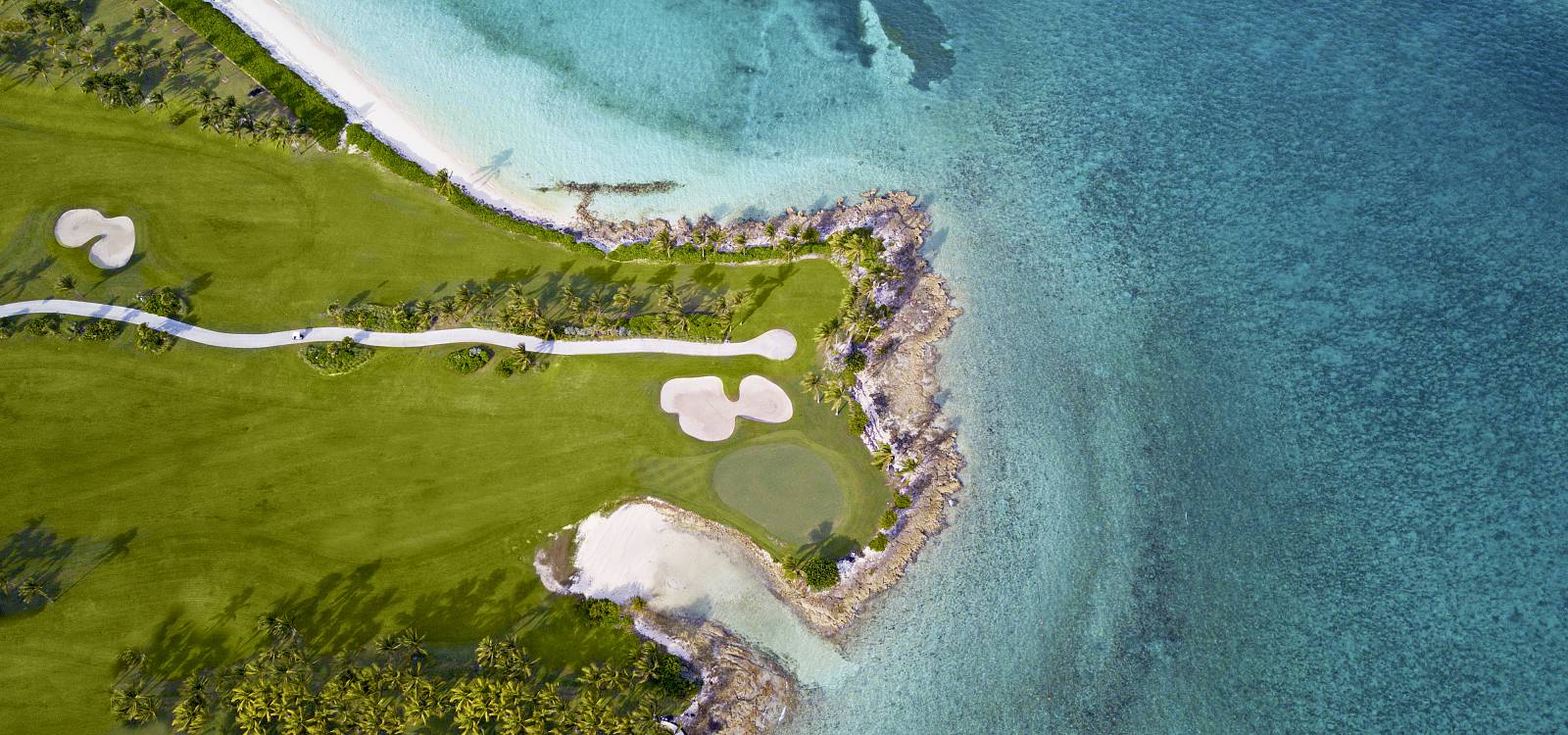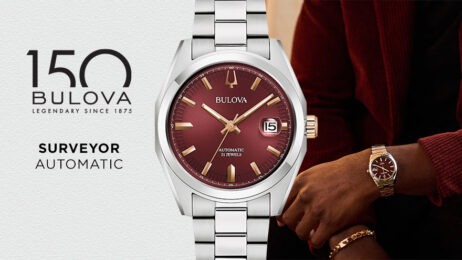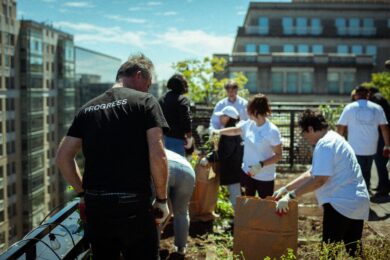How planners can take part culture of conservation, environmental sustainability and positive impact at a sought-after destination
June 8 is World Ocean Day. The annual commemorative date was established following a 1992 proposal by Canada’s International Centre for Ocean Development and the Ocean Institute of Canada at the Earth Summit – UN Conference on Environment and Development in Rio de Janeiro, Brazil. Each year, the date marks a moment to recognize lasting collective action for a healthy ocean and stable climate.
Atlantis Bahamas stands out as not only an esteemed hospitality destination, but a pioneer in environmental and ocean conservation—and its example is one that can inspire us all. As a resort that stands right on the Caribbean waters, ocean conservation is a top priority.
Michelle Liu, senior vice president of marine and waterpark operations at Atlantis Bahamas Paradise Island, has a first-hand look at The Bahamas’ surrounding ocean environment. She spends her days working to preserve and protect this environment through a wealth of initiatives, dedicated research and partnerships and robust programming.
Smart Meetings spoke to Liu to learn more about Atlantis Bahamas’ environmental stewardship, ocean preservation and conservation initiatives and how planners can get involved when meeting there.
Read More: Sustainability as a Practice
Get to Know Michelle Liu—and The Bahamian Waters
The Bahamas is known for its crystal blue water and life-filled coral reefs. Having grown up there, though, Liu has seen it change throughout her lifetime.
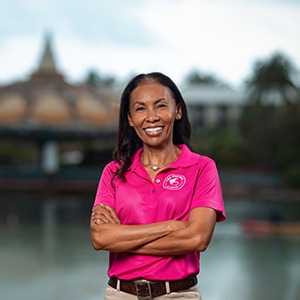
Liu spent summers at her grandmother’s family home, right on the beach, in the island of Eleuthera. “I spent most of my time there in the water,” she remembers.
“That’s where my love for the ocean started. I always knew that whatever career path I was going to take, it had to involve the ocean,” says Liu. At that time, the threat of global warming and concern about ocean conservation and environmental stewardship were nowhere near as prevalent as they are today. It wasn’t until the start of her career that Liu saw firsthand just how dire an issue global warming really was.
“Back then…I can’t even describe it to you,” she says. “[The reefs were] like something out of a movie set. Everything was pristine—teeming with fish and turtles. Everything, everywhere you went was just so beautiful.”
After earning a degree in biology in Florida, Liu returned to The Bahamas and worked at an aquarium. Throughout her seven and a half years there, she watched this environment change before her eyes.
“It just wasn’t the same anymore, one day,” she says. “The world started to become aware of the effects of humans, because we started to see our effect on the oceans and in the environment.”
It was around that time she received a call from Atlantis, recruiting her to work there. As the senior vice president of marine and water park operations, she has oversight of the entire Aquaventure Water Park as well as the two departments responsible for the resort’s marine life, habitats and all the animals in the resort’s care.
Environmental Stewardship at Atlantis
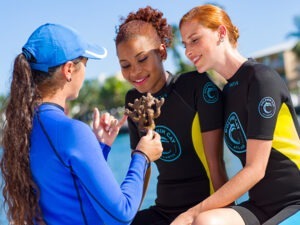
Liu’s team’s conservation work spans far beyond Atlantis Bahamas, with involvement in nonprofit conservation and research programs throughout the Bahamas. Atlantis Bahamas as a whole is dedicated to ongoing efforts towards conservation through a four pillar approach: sustainable living, ecosystem conservation, wildlife protection and education and awareness.
The resort maintains partnerships with sustainable fisheries that support its food and beverage program, a robust recycling program and a strong team member culture around recycling and plastic reduction. Planners should know, balloons of any type are prohibited on the property to reduce plastic waste. The resort has replaced single-use plastic water bottles with reusable metal bottles. “It’s going to cost us a little bit more. But at the end of the day, it benefits our environment.” Refillable water stations are prevalent across the property; its stores carry reef-safe sunscreen; its entire food and beverage program uses biodegradable straws and to-go containers.
Read More: Your Complete Guide to Sustainability
Atlantis Bahamas installed the first Seabin in The Bahamas, which skims floating debris, macro and microplastics and even microfibers, helping to create a cleaner ocean environment.
The resort participates in environmental monitoring to assist Bahamian national parks. Wildlife conservation is a major pillar for a resort such as this one, which operates numerous marine interaction programs, including strong rescue and release program. Many endangered species that have been rescued and are unable to be released back into the wild reside at the resort either in veterinary care or, once healthy enough, in holistic well-being-focused in the resort’s many lagoons or its aquarium. Just one example of its success on this end is Atlantis aquarium’s achievement as the world’s only aquarium to have seen successful reproduction of the smalltooth sawfish, a critically endangered species.
The Blue Project Foundation
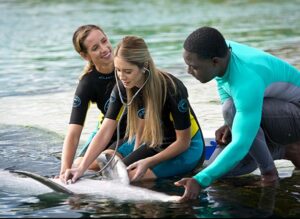
The Blue Project Foundation, a 501(c)3 nonprofit founded by Atlantis Bahamas in 2005, is dedicated to the conservation and preservation of marine life and ecosystems in the Bahamas and throughout the surrounding Caribbean seas, working in partnership with The Bahamas National Trust and The Nature Conservancy. The Blue Project Foundation supports research and conservation initiatives through funding, largely gathered from the resort’s programming.
This programming includes any of Atlantis Bahamas’ marine programs, such as a visit to Dolphin Cay. Just recently, the resort has launched three environmental stewardship programs for groups. The first, launched in May 2024, is the roots and shoots program, in which groups take part in mangrove planting at The Bahamas National Trust protected wetlands. These programs can be booked through the group sales team upon request.
Funds are also gathered from donation boxes at Atlantis Casino, a portion of the proceeds from the Music Making Waves concert series and retail sales, as well as through direct donations.
Read More: Seeking Sustainable Venues
All these funds go into a general pool, and at the end of each year, the Blue Project Foundation Board, on which Liu sits, votes on the projects they will fund for the following year. In 2023, the board voted to fund the coral gene bank, in addition to certain programming they have funded year after year, including The Bahamas Marine Mammal Research Organization, which participates in rescue as well as research. It also funds the Sea Turtle Conservancy and Sea to Shore, which works to save the smalltooth sawfish. It doesn’t end there—The Blue Project Foundation engages in many more research and conservation programs as well as ample education programs around marine life, preservation and conservation.
What’s at Stake?
One of the most dire issues affecting the oceans surrounding The Bahamas is Stony Coral Tissue Loss Disease (SCTLD). Understood to be a bacterial pathogen, the disease has rapidly spread throughout over 20 species of hard corals in the Caribbean. Within weeks of exposure, it can kill off an entire coral colony.
What were once vibrant underwater jungles of pinks, reds and greens, brimming with schools of fish, sea turtles and anemone fade to white, coral skeletons, empty of the crowds of marine life that once made it home.
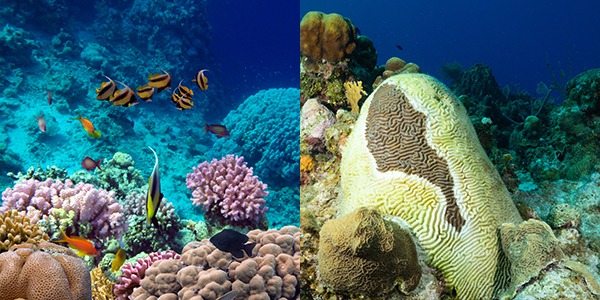
Not only does SCTLD harm the ocean—it can hurt the community on land too. Coral reef tourism is one of the key draws for visitors to The Bahamas, so as SCTLD continues to harm the reefs, so too does it harm the tourism economy, one of the biggest industries in the country.
Liu is on a mission to save these reefs, though. Atlantis Bahamas built The Bahamas’ first coral gene bank, directly funded by The Blue Project Foundation. This controlled environment for coral rescue, propagation and replanting is managed in partnership with several other organizations, including the Perry Institute, the University of The Bahamas and the Bahamas Ministry of Agriculture, Marine Resources & Family Island Affairs. Upon eradication of SCTLD, the healthy corals grown in this gene bank will be planted to re-populate the coral reefs and return them to the life-filled ecosystem they once were.
How Planners Can Get Involved
We know that meetings can be wasteful. And in an environment that is struggling, such as the Caribbean coral reefs, planners may think the best they can do is stay away. But Liu says, this should in no way discourage groups from traveling to Atlantis.
Read More: Sustainability Tools for Easier Green Planning
“We’re doing a lot here, as a company,” she says. “We have policies in place. Sustainability and conservation are part of our culture.” From refillable water stations to the balloon ban, sustainability is part of every aspect of the resort, small and large, day to day.
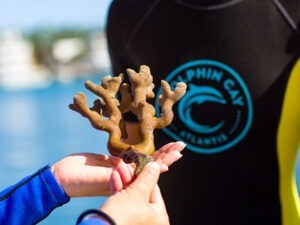 “When groups think about planning big meetings, and part of their decision involves the desire to not contribute to a large carbon footprint, they should be looking at resorts that have some sort of environmental policy in place,” says Liu.
“When groups think about planning big meetings, and part of their decision involves the desire to not contribute to a large carbon footprint, they should be looking at resorts that have some sort of environmental policy in place,” says Liu.
When groups meet at Atlantis Bahamas, they know that not only are they meeting in a space where environmental policies work to reduce their carbon footprint, and where they can participate in truly impactful environmental stewardship programs. Tourism dollars matter, especially when we know they are funding conservation, and contributing to both a healthy environment and a healthy local community.
Planners heading to Atlantis know that every dollar spent, across the resort, whether it is towards resort programming, marine interactions, a visit to the waterpark, a night at the casino, even one attendee’s retail purchase, goes towards an all-encompassing, thoughtfully organized and highly impactful conservation program rooted in environmental stewardship that, before our very eyes, is building a healthier ocean environment and planet.
Read More: Atlantis Bahamas: They Call it Paradise for a Reason
